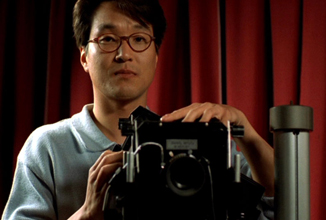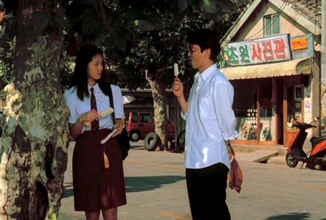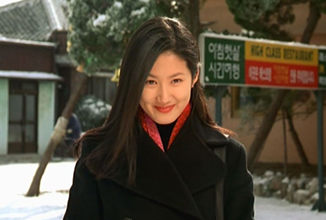"When I was a kid, I always sat alone in the playground after the other boys had gone and, thinking about my late mother,
it struck me that we'd all disappear in the end..."
Jung-won runs the Chowon photo studio, taking photographs of families and developing prints for local businesses. He loves his simple life, but is seriously ill and has made the conscious decision to keep his condition secret from all but his family. However, when a beautiful young traffic warden, Da-rim, begins to frequent his studio, he finds himself quickly falling for her and, as they start to become closer, he is forced to make an agonisingly difficult choice - either tell her how ill he really is, or step away from the relationship altogether...
From the outset of Christmas in August, it is clear that though Jung-won is dealing as best he can with his (unnamed) illness, and is determined to carry on living the simple life which he loves, he is less able to cope with the resultant pain that the knowledge of the extent of his malady causes those close to him, but while his decision to tell no-one outside his immediate family of his condition is a conscious and (in one respect, at least) admirable attempt to keep others from being hurt, that decision also directly causes a separate set of pains and heartaches, most specifically to Da-rim, and Jung-won himself:
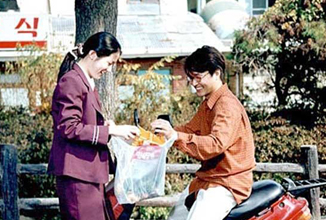 |
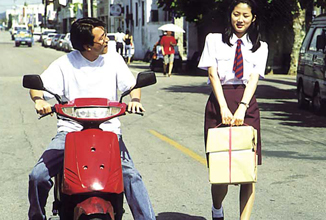 |
Jung-won knows that a future with Da-rim is impossible, no matter how much he wants to be with her, and the heartbreaking choice of either telling her the full extent of his situation and illness, or quietly backing away from the blossoming relationship without explanation, increasingly weighs on his mind more than his illness itself.
Da-rim, being utterly unaware that Jung-won is unwell, repeatedly battles to understand why he seems so reticent to allow her to get closer to him, and his lack of explanation, far from saving her from pain, leaves her believing that she is simply being rejected. From her point of view, his seemingly uncaring attitude only serves to make her feelings of hurt cut even more deeply and, in fact, by far the most poignant scenes in Christmas in August all centre around the hurt caused to the two main characters by this lack of explanation, and the resultant confusion of feelings and misunderstandings.
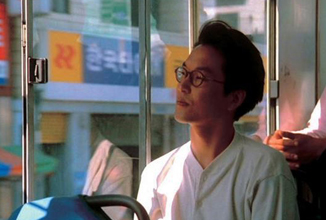 |
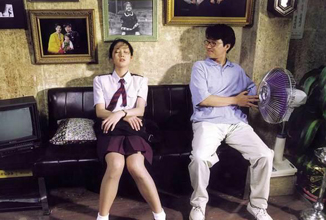 |
The age-old idiom "A picture paints a thousand words" really sums up the state of play in Christmas in August.
Here we have a heartfelt, poignant and affecting story of love and loss, where characters, more often than not, use words to deliberately gloss over, or distract attention from, what they really feel. The dialogue is gentle, witty and perfectly understated throughout, but it is its combination with the tiniest changes in character facial expressions which tells viewers everything, while (vocally) very little is outwardly stated regarding the feelings hidden beneath the words.
"I love you" is never uttered in Christmas in August, but the phrase repeatedly screams out of every pore of the faces of both Da-rim and Jung-won, and it is blatantly clear, almost from the first moment that the two characters meet, that they are soul mates who quite simply belong together, despite what fate has in store for them.
Similarly, no specific vocal discussion of Jung-won's illness is undertaken, to any real degree, in the film - on the couple of rare occasions where an attempt is made by a character to bring up the subject, Jung-won either denies that there is anything wrong, or makes a joke out of telling the truth, thereby, once again, deflecting attention from the grim reality of the situation - and while it is the single biggest plot device present in the film, it is rarely the focus of direct attention. Though Jung-won is never fully free from thoughts of his condition, the pain we are routinely shown is more often that of those close to him, and his hurt at knowing that he is the cause of their anguish.
While a plethora of films with similar storylines exist in South Korean cinema, Christmas in August is much less gushingly sentimental (and less melodramatic) in its plot delivery than most, allowing the film to be far more genuinely, and believably, moving as a direct result.
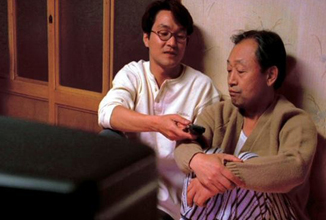 |
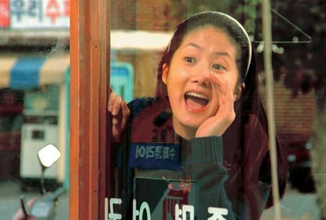 |
Cinematically, like many of Hur Jin-ho's films, Christmas in August is visually intimate while never coming across as intrusive. With the majority of scenes being, outwardly, fairly simple, perfect camera angles and character positioning serve to almost always place our would-be lovers together in frame (as their relationship begins to blossom), thereby adding to the feeling that these two characters truly are meant to be together.
As the story progresses, this intimate framing gradually gives way to a deliberate visual separation of the characters which becomes all the more noticeable, and heartbreaking, when combined with Da-rim's confusion and hurt, increasing in tandem with the extent of Jung-won's illness.
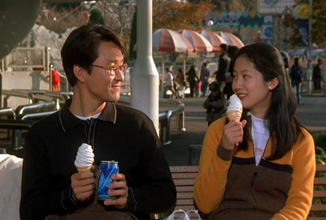 |
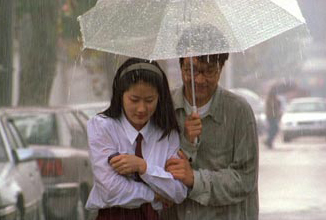 |
Cast:
Han Suk-kyu gives a polished and accomplished performance as Jung-won. Early on in proceedings, his character's repeated smiles and happy demeanor appear to be a little overplayed, but it quickly becomes obvious that that apparent overplaying is, in fact, Jung-won's attempts to hide the extent of his illness from those around him, and that Han Suk-kyu has deliberately placed the slight "fakeness" into his portrayal of the character. As the poignancy of the storyline builds, his performance becomes all the more nuanced and perfectly understated, resulting in an utterly memorable character depiction.
Shim Eun-ha's portrayal of Da-rim is exquisite, feeling absolutely real from start to finish. Her performance in Christmas in August played a large part in cementing her place as one of the most popular actresses in South Korea, and watching the multitude of feelings which she is able to effortlessly convey with a tiny gesture or facial expression, it is easy to see why.
Shim Eun-ha stopped acting when she got married in 2001 (to become a successful artist) but, to this day, many still wait patiently in the hope that she will return to acting at some point in the future.
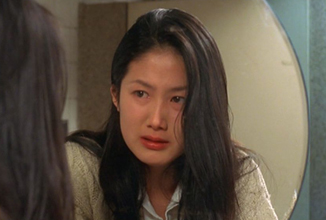 |
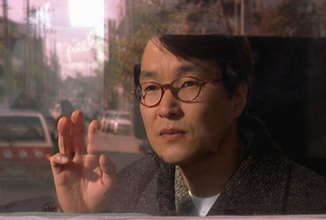 |
Summary:
One of Hur Jin-ho's most accessible films, Christmas in August is a heartfelt, poignant and affecting story of love and loss, in which the words "I love you" never need to be said.
Cast
Han Suk-kyu
Shim Eun-ha
Goo Shin
Oh Ji-hye
Lee Han-wi
DVD
The DVD edition reviewed here is the UK (Region 0) Tai Seng Entertainment single disc edition. The film itself is provided as an anamorphic transfer with an aspect ratio of 1.85:1 and there are no image artifacts (and no ghosting) present.
The original Korean language soundtrack is provided as Stereo 2.0 and is crisp and clear, if unremarkable.
The musical score is well balanced and reasonably nuanced, complimenting the visuals beautifully throughout.
Excellent subtitles are provided for both the main feature and all of the extras.
DVD Details:
• Director: Hur Jin-ho
• Format: PAL, Anamorphic, Widescreen, Subtitled
• Language: Korean
• Subtitles: English/Chinese
• Sound: Korean Stereo 2.0, Cantonese 5.1 Dolby Digital Surround Sound, Cantonese Stereo 2.0
• Region: Region 0
• Aspect Ratio: 1.85:1
• Number of discs: 1
• Classification: 12
• Distributor: Tai Seng Entertainment
• Run Time: 110 minutes (approx.)
DVD Extras:
• Director's Audio Commentary
• 'Making of' Featurette
• Music Video
• Trailers
|


